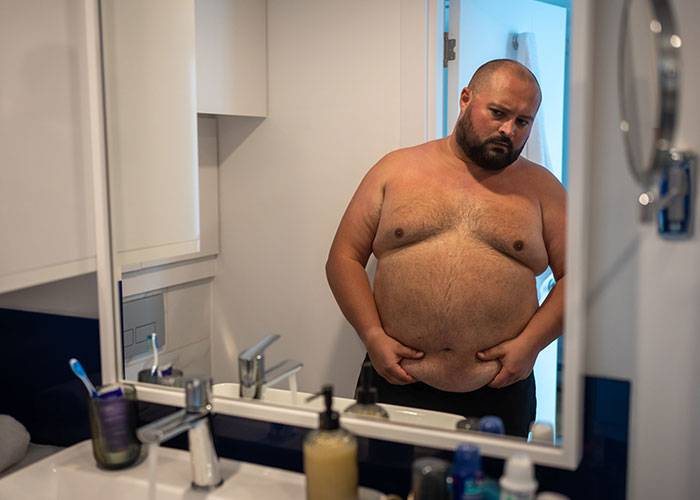Trump Dishonors Fallen Soldiers Again

This is an edition of The Atlantic Daily, a newsletter that guides you through the biggest stories of the day, helps you discover new ideas, and recommends the best in culture. Sign up for it here.
On Monday, Donald Trump visited the sacred ground of Arlington National Cemetery, where many of America’s war dead are buried, and posed for photos. In the strangest of these pictures, the former president is smiling and giving a thumbs-up by the grave of a Marine. It’s an image of a man who has no idea how to behave around fallen heroes.
Trump was at Arlington ostensibly to honor the memory of the 13 service members who were killed in a suicide bombing during the chaotic final days of the U.S. withdrawal from Afghanistan. The event was supposed to be respectful and private; according to a press-pool note, the families of the troops had asked that there be no media coverage in the area where the service members were buried. But Trump seemed to have other ideas.
According to a report by NPR, Trump’s campaign staff got into a verbal and physical altercation with a cemetery official who tried to stop campaign staffers from filming and taking photographs in the area of the cemetery reserved for recently fallen soldiers. The cemetery confirmed that an incident took place on Monday but did not provide any details, instead noting in a statement that federal law prohibits “political campaign or election-related activities within Army National Military Cemeteries.” The Trump-campaign spokesperson Steven Cheung said in a statement that “there was no physical altercation as described,” and added in a post on X that Trump had been allowed a private photographer on the premises. But in his statement, Cheung also accused the cemetery official who’d tried to block Trump’s staff of “clearly suffering from a mental health episode.”
It’s hard to see Trump’s Monday visit as anything but a campaign stop intended to court the military vote. Speaking to a group of National Guard members in Detroit later that day, he blamed President Joe Biden and Vice President Kamala Harris for the failures of the Afghanistan withdrawal. By now, Trump’s use of the military as a prop for his own ends should surprise no one. Despite his vigorous avoidance of military service, Trump has a long history of denigrating the service of others, even as he poses as a defender of the nation’s military. As a candidate for the Republican nomination in 2015, he mocked Senator John McCain’s status as a prisoner of war. “He’s not a war hero,” Trump said at the time. “I like people who weren’t captured.”
Later, as president, he told his then–chief of staff John Kelly that he didn’t want “any wounded guys” in his planned Independence Day parade: “This doesn’t look good for me.” Recently, he suggested that the civilian Medal of Freedom is “actually much better” than the military’s Medal of Honor, “because everyone gets the Congressional Medal of Honor, that’s soldiers, they’re either in very bad shape because they’ve been hit so many times by bullets, or they’re dead.”
But Trump is especially out of place around the nation’s fallen troops. As reported by The Atlantic’s editor in chief, Jeffrey Goldberg, Trump went to Arlington Cemetery with Kelly on Memorial Day 2017 and visited the gravesite of Kelly’s son Robert, who had been killed in Afghanistan. Standing next to the former Marine general, Trump said: “I don’t get it. What was in it for them?” In 2018, Trump canceled a visit to the Aisne-Marne American Cemetery, near Paris; as Jeffrey reported, Trump told staff members that the cemetery was “filled with losers.” Trump also “referred to the more than 1,800 Marines who’d lost their lives at Belleau Wood as ‘suckers’ for getting killed,” according to Jeffrey’s reporting.
Jeffrey’s story is very much a sore spot for a candidate who wants to wrap himself in the flag. Trump has denied the reporting, but it was confirmed to CNN by Kelly: “What can I add that has not already been said? … A person that thinks those who defend their country in uniform, or are shot down or seriously wounded in combat, or spend years being tortured as POWs, are all ‘suckers’ because ‘there is nothing in it for them.’ A person that did not want to be seen in the presence of military amputees because ‘it doesn’t look good for me.’”
Kelly went on to corroborate other details in Jeffrey’s article. “God help us,” he concluded.
Monday’s wreath-laying at Arlington was, in part, Trump’s attempt to clean up the mess he has created, and to establish some credibility as a champion of men- and women-at-arms. But in the end, it merely served to remind Americans how little he understands about service, sacrifice, and heroism.
Related:
Here are three new stories from The Atlantic:
- New York City’s chaos mayor
- Seven questions that should be easy for Harris to answer
- Elaine Godfrey: “What I heard at Swifties for Kamala”
Today’s News
- The Supreme Court maintained a temporary block on the Biden administration’s latest plan to relieve student debt.
- Israeli troops raided cities in the occupied West Bank, killing at least 10 people, in an overnight operation that targeted Palestinian militants, according to Israeli officials.
- Pavel Durov, a co-founder and the CEO of Telegram, was charged in France with several crimes, including complicity in both drug trafficking and the distribution of child-sexual-abuse material.
Dispatches
- The Weekly Planet: Corals have endured so much—but to survive climate change, they’ll have to adapt dramatically, Marina Koren writes.
Explore all of our newsletters here.
Evening Read
Photograph by Jordan Gale21 Minutes in the Buttigieg Bubble
By Mark Leibovich
“Okay, we have to move fast,” one of Pete Buttigieg’s aides told me as the discoursing dynamo was finishing another cable interview on the last day of the Democratic National Convention.
Buttigieg stepped off an MSNBC set and onto the United Center floor. “I’m here to give you some much-needed attention,” I told him. By “much-needed,” I was of course being sarcastic: Buttigieg has been a rather relentless media presence in recent weeks, especially this past one in Chicago.
More From The Atlantic
Culture Break
Xavier Collin / Image Press Agency / ReutersListen. Sabrina Carpenter’s new album, Short n’ Sweet (out now), is a salvo against the stereotype that women, blondes, and pop don’t have a lot to say, Spencer Kornhaber writes.
Read. “Keepsake,” a poem by Roey Leonardi:
“We tried to share a life. / Now it’s morning / and I can see where I end”
Stephanie Bai contributed to this newsletter.
When you buy a book using a link in this newsletter, we receive a commission. Thank you for supporting The Atlantic.


